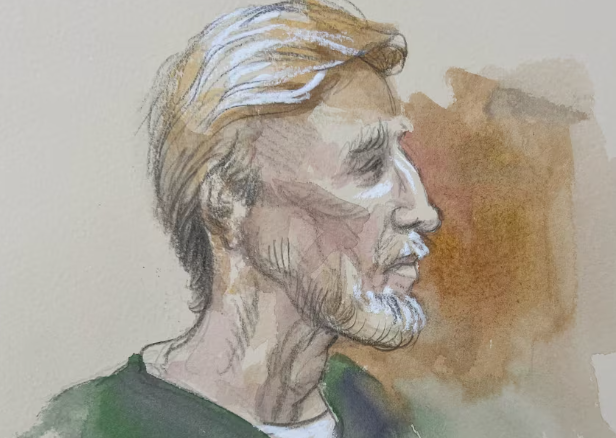Ryan Routh, the man accused of attempting to assassinate Donald Trump by allegedly positioning himself with a rifle outside one of Trump’s Florida golf courses on Sept. 15, pleaded not guilty on Monday to five federal charges. During a hearing before U.S. Magistrate Judge Bruce Reinhart, Routh, 58, entered the plea, which includes the charge of attempted assassination of a major presidential candidate. Routh remains in jail awaiting trial.
Appearing in court handcuffed and wearing a tan prison jumpsuit, Routh answered, “Yes, your honor,” when Judge Reinhart asked if he understood the charges. Routh’s defense lawyer then entered the not guilty plea on his behalf.
Prosecutors stated that Routh intended to kill Trump while he golfed at Trump International Golf Club in West Palm Beach. Routh, a struggling roofing contractor, had condemned Trump in a self-published book and previously left a letter with an associate referencing an assassination attempt on Trump. “This was an assassination attempt on Donald Trump but I failed you,” Routh reportedly wrote, according to court documents.
Routh’s defense lawyers suggested during a Sept. 23 hearing that the letter may have been an attempt to gain publicity and pointed to Routh’s efforts to promote democracy in Ukraine and Taiwan.
On the day of the alleged assassination attempt, Routh hid outside a fence near the sixth hole of the course, where authorities later discovered an AK-47-style rifle, snacks, a digital camera, and bags containing metal plates intended to protect against return fire from the U.S. Secret Service.
A Secret Service agent patrolling the course noticed the rifle sticking through a fence and opened fire on Routh, who fled the scene but was arrested later on a Florida highway. Initially charged with gun-related offenses, Routh now faces additional charges, including attempted assassination, assault on a federal officer, and possessing a firearm in furtherance of a crime of violence.
This Florida incident marks the second apparent assassination attempt on Trump within two months, raising concerns about the candidate’s security ahead of the Nov. 5 election. In July, a gunman wounded Trump’s right ear and killed an attendee at a campaign rally in Butler, Pennsylvania, before being shot by a Secret Service sniper.
Trump has turned these assassination attempts into a campaign issue, criticizing the Justice Department—responsible for charging him in two criminal cases last year—and questioning its ability to handle the investigation properly.

